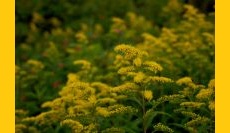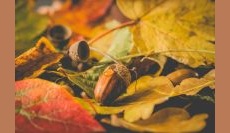|
Empty
Welcome
Visitor
Browse Courses
Sort by:
Default

S25/20
Fermentation is all the rage. It used to be the best way to preserve food before refrigeration, but its health benefits have been rediscovered (improving gut health and reintroducing all those wonderful probiotics our digestive systems have been lacking). We can use all our locally grown produce, and a few other ingredients, and start fermenting today! Sauerkraut, pickles, hot sauce and lots of other condiments are only the beginning. The hardest part is deciding what to start making! We will discuss: equipment, ingredients, temperatures, storage conditions, and some possible mistakes to watch out for. This is a hands-on demonstration. We’ll try some fermented foods and make our own together!
More
 Starts:
6/26/2025
10:00 AM
Starts:
6/26/2025
10:00 AM
 Ends:
6/26/2025
12:00 PM
Ends:
6/26/2025
12:00 PM
 Duration:
2 hours
Duration:
2 hours
 Credits:
2 Class Hours
Credits:
2 Class Hours
 Pricing:
Pricing:
 Location:
Location:

S25/HT1
This course is required for certified Master Gardeners as part of their requirements to maintain Active Certification for next year. The three Hot Topics for 2025 are: 'The Buzz About Honey Bees: Pollination, Honey, and Protecting Our Pollinators' by the State Apiary Inspector Paula Wolfe, 'How to Minimize Heat Related Disorders' by the COO of the UConn Korey Stringer Institute, Rebecca Stearns and a presentation on 'The Keystone Genus, Quercus' by the UConn Litchfield County Master Gardener Coordinator, Zac Bull.
"The Buzz About Honey Bees: Pollination, Honey, and Protecting Our Pollinators"
In this talk, we’ll explore the important role honey bees play in pollination and food production. Honey bees are essential to the reproduction of many plants and crops, helping to pollinate one-third of the food we eat. We’ll look at how these incredible insects produce honey, working together in a highly organized colony to gather nectar and turn it into the sweet treat we love. Honey bees are facing numerous threats, including habitat loss, pesticide exposure, and diseases. These challenges endanger not just the bees, but the ecosystems and food systems that rely on them. Join our discussion to learn what we can do to help protect these essential pollinators.
More
 Starts:
7/9/2025
9:00 AM
Starts:
7/9/2025
9:00 AM
 Ends:
7/9/2025
12:00 PM
Ends:
7/9/2025
12:00 PM
 Duration:
3 hours
Duration:
3 hours
 Credits:
3 Class Hours
Credits:
3 Class Hours
 Pricing:
Pricing:
 Location:
Location:
 Status:
362 open seats left
Status:
362 open seats left

S25/34
We all know there are good guys and bad guys in our gardens. Flies, wasps, beetles, bugs - are they good or bad? The answer is both. And while encouraging beneficials in the garden is important, gardeners usually don't understand their enemies well enough. So this class will concentrate on the biology and lifecycles of our most common garden pests. We will also discuss many of our beneficial friends and techniques to get more of them to help in the struggle.
More
 Starts:
7/23/2025
9:30 AM
Starts:
7/23/2025
9:30 AM
 Ends:
7/23/2025
11:00 AM
Ends:
7/23/2025
11:00 AM
 Duration:
1 hour
30 minutes
Duration:
1 hour
30 minutes
 Credits:
2 Class Hours
Credits:
2 Class Hours
 Pricing:
Pricing:
 Location:
Location:
 Status:
30 open seats left
Status:
30 open seats left

S25/30
What makes a plant a “weed,” and what are we losing when we pull them? This class explores the ecological, culinary, and medicinal value of so-called weeds. Many are native or naturalized plants with overlooked roles in our gardens and landscapes. We’ll also cover responsible foraging, safe disposal practices to limit the spread of invasives, and how to reimagine “weeds” as allies in pollinator support and soil health. Resources will be provided. Snacks made with featured plants will be available at the end of the class to share in a potluck-style format.
More
 Starts:
7/23/2025
10:00 AM
Starts:
7/23/2025
10:00 AM
 Ends:
7/23/2025
12:00 PM
Ends:
7/23/2025
12:00 PM
 Duration:
2 hours
Duration:
2 hours
 Credits:
2 Class Hours
Credits:
2 Class Hours
 Pricing:
Pricing:
 Location:
Location:
 Status:
38 open seats left
Status:
38 open seats left

S25/25
Join us for an informative class on Goldenrod. As a keystone species, goldenrods are the host plants for more than 400 individual species of insects! Often mistakenly maligned for causing allergies, this herbaceous perennial is hiding more than just roots under its leaves. Learn more about its history, its impacts, and its identification in the second of our summer Keystone Species Lecture Series.
More
 Starts:
7/30/2025
6:00 PM
Starts:
7/30/2025
6:00 PM
 Ends:
7/30/2025
8:00 PM
Ends:
7/30/2025
8:00 PM
 Duration:
2 hours
Duration:
2 hours
 Credits:
2 Class Hours
Credits:
2 Class Hours
 Pricing:
Pricing:
 Location:
Location:
 Status:
31 open seats left
Status:
31 open seats left

S25/32
Each summer, do you find yourself with a bounty of veggies, with more than you can possibly eat? Do you find it hard to cook dinners in small batches, or like to have meals prepared in advance? This class is for you! We will cover everything the beginner canner and preserver needs to know. We will talk about canning jams, jellies, preserving vegetables, cooked meals, and more. Learn what tools you need, how to choose the best vegetables and fruits, how to safely preserve your bounty, along with great tips, recipes, and more!
More
 Starts:
8/26/2025
2:00 PM
Starts:
8/26/2025
2:00 PM
 Ends:
8/26/2025
4:00 PM
Ends:
8/26/2025
4:00 PM
 Duration:
2 hours
Duration:
2 hours
 Credits:
2 Class Hours
Credits:
2 Class Hours
 Pricing:
Pricing:
 Location:
Location:
 Status:
58 open seats left
Status:
58 open seats left

S25/26
Join us for an informative class on Willows. As a keystone species, willows are the host plants for more than 300 individual species of insects! More than just a statement plant, willows have a hidden depth of history and usage. Learn more about its history and its impacts, as well as identification, in the last of our summer Keystone Species Lecture Series.
More
 Starts:
8/27/2025
10:00 AM
Starts:
8/27/2025
10:00 AM
 Ends:
8/27/2025
12:00 PM
Ends:
8/27/2025
12:00 PM
 Duration:
2 hours
Duration:
2 hours
 Credits:
2 Class Hours
Credits:
2 Class Hours
 Pricing:
Pricing:
 Location:
Location:
 Status:
43 open seats left
Status:
43 open seats left

S25/31
Pollinators are part of the intricate web that supports biological diversity in nature which helps to sustain our quality of life. Pollinators are needed for reproduction of 90% of our flowering plants and one third of food crops. This program emphasizes the characteristics of each pollinator species and their specific needs. Because bees and other important pollinator populations are on the decline in Connecticut, it is important to know what we can do in our communities to protect and provide for them. We will also explore steps the state has taken to help with declining pollinator populations
More
 Starts:
9/4/2025
10:00 AM
Starts:
9/4/2025
10:00 AM
 Ends:
9/4/2025
12:00 PM
Ends:
9/4/2025
12:00 PM
 Duration:
2 hours
Duration:
2 hours
 Credits:
2 Class Hours
Credits:
2 Class Hours
 Pricing:
Pricing:
 Location:
Location:
 Status:
58 open seats left
Status:
58 open seats left

S25/24
Join us for an informative class on Oak trees. As a keystone species, oaks are the host plants for more than 500 individual species of insects! Used by a variety of people for a a variety of purposes, these large specimen trees have on even larger impact on the new England ecosystem. Learn more about their history, their impacts, and their identification in the first of our Keystone Species Lecture Series.
More
 Starts:
9/13/2025
2:00 PM
Starts:
9/13/2025
2:00 PM
 Ends:
9/13/2025
4:00 PM
Ends:
9/13/2025
4:00 PM
 Duration:
2 hours
Duration:
2 hours
 Credits:
2 Class Hours
Credits:
2 Class Hours
 Pricing:
Pricing:
 Location:
Location:
 Status:
50 open seats left
Status:
50 open seats left

S25/33
In this lecture, Kerry will share how her outlook on flower gardening has evolved over the decades. In addition to following the latest earth-friendly practices and incorporating more natives, she has also shifted her focus from perennials to shrubs that provide months of radiant color but are far less maintenance. This eye-opening session features remarkable shrubs for front to mid-border gardens, as well as their pruning requirements. These stunning beauties also are ideal for over-wintering in containers.
More
 Starts:
9/27/2025
10:00 AM
Starts:
9/27/2025
10:00 AM
 Ends:
9/27/2025
12:00 PM
Ends:
9/27/2025
12:00 PM
 Duration:
2 hours
Duration:
2 hours
 Credits:
2 Class Hours
Credits:
2 Class Hours
 Pricing:
Pricing:
 Location:
Location:
 Status:
56 open seats left
Status:
56 open seats left
|

